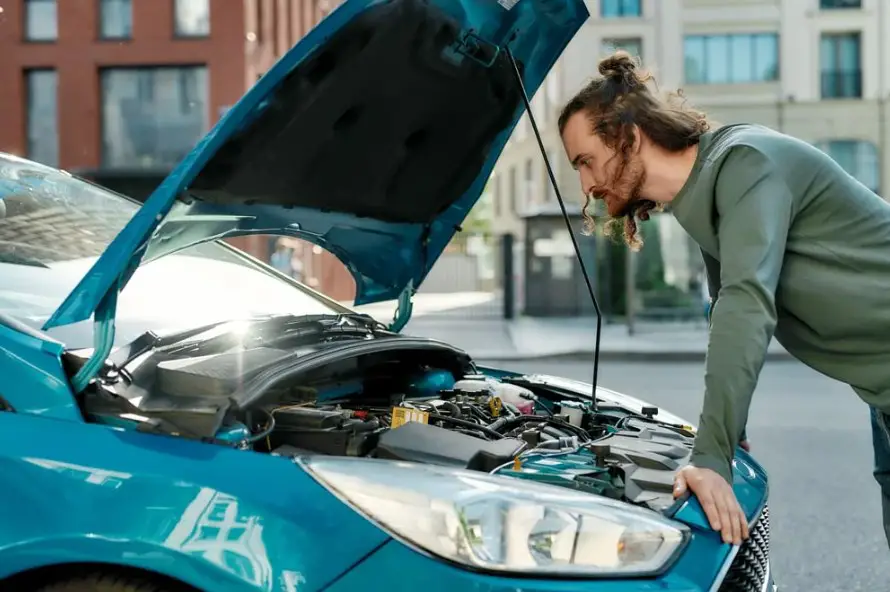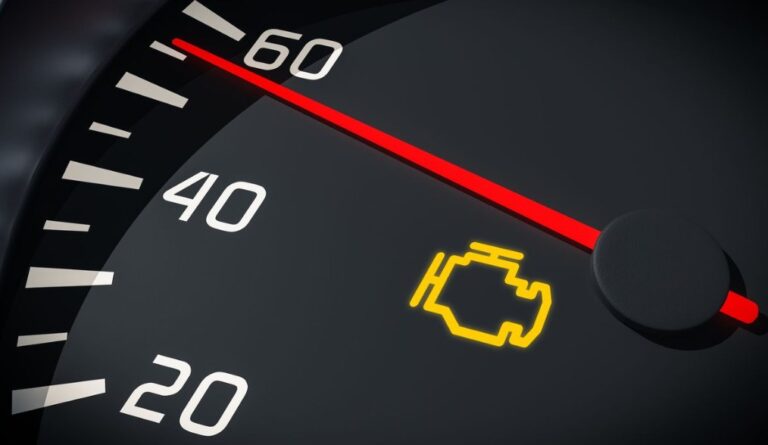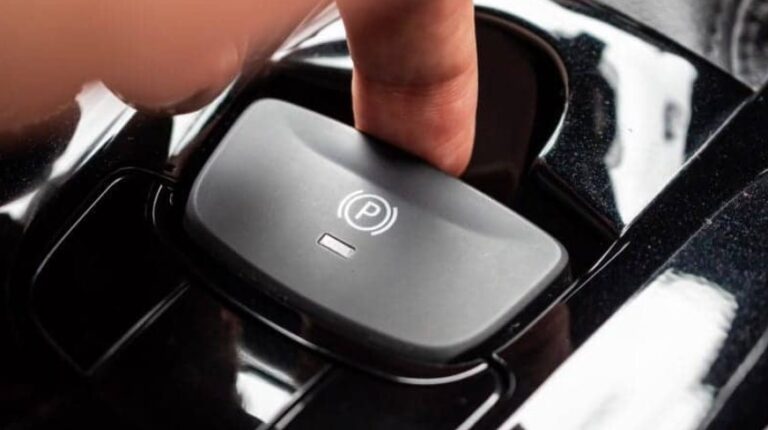Reasons Why Your Car Shuts Off While Driving & How to Fix
When the car turns off while driving, automobile owners usually start inspecting the fuel filter, faulty fuel pump, spark plugs, and other components. This is right, because the reason is usually identified on the surface.
It is also caused by issues with fuel quality, supply, specific components of the fuel pump, electronic vehicle filling, or even incorrect driving. Much is also determined by the type of engine.
First, try to suppress panic and clear the road with your car. Only then can you make efforts to eradicate or identify the source.
Any experienced driver has encountered such a circumstance at least once, although it may not always involve his vehicle. As a result, it is critical for every automobile owner to understand why this occurs and what to do in such a case.

How The Engine And Fuel System Function
Understanding the vehicle’s unusual behavior requires understanding how its engine works. The power unit operates on the same principle regardless of fuel source: the fuel-air mixture bursts in the cylinders, causing high pressure due to the discharge of combustion products.
This increased pressure causes the piston to push against the crankshaft, making it turn in the desired direction. The engine runs smoothly due to the sequential working of all cylinders as well as the substantial weight of the crankshaft and flywheel.
The Main Causes Of A Car Turns Off While Driving
Because a car engine is a very complex unit whose functioning is supported by several systems and devices, the reason of unexpected halting is nearly always a breakdown or malfunction of extra equipment.
After all, it is difficult to harm the engine’s components, and when this occurs, its operation is significantly hampered.
1. Faulty Fuel Pump
A shortage of gasoline is the most common and rational reason for a car not to start. Not only may there be no gas in the tank, but there could also be a problem with the fuel supply system. It is supplied from the fuel tank to the engine by a particular fuel pump.
Replacing the fuel pump is a straightforward task that requires little effort. The gadget is situated behind the rear seat, where it is easily accessible.
In addition to issues with bad fuel pump operation, delays in fuel supply might result in a more unusual impact: gasoline boiling. It happens when it’s too hot, especially after you’ve been stuck in traffic for a long time in high summer temperatures. There are two solutions to the problem:
- Turn off the engine and allow it to cool.
- Direct warm air streams into the car’s interior.
Both of these will cause the fuel to cool.

2. Faulty Crankshaft Position Sensor
In both gasoline and diesel engines, the crankshaft position sensor is in charge of total ignition timing. Because of a faulty crankshaft position sensor, the car will not start in 90% of situations.
However, if the crankshaft position sensor is nearing the end of its life, the engine may malfunction.
In most cases, the sensor is electromagnetic. It consists of an inductance coil wrapped in an extremely thin wire on a magnetic core.Moisture can seep into it during operation and wear and tear. However, a defective crankshaft position sensor may not cause the car to stop completely.
A common case of a faulty crankshaft position sensor is as follows: the engine starts without issue while cold, then abruptly stops after about 15 minutes of driving, then restarts without issue after about half an hour of wandering around the car.
Therefore, if your vehicle has a crankshaft position sensor but no camshaft sensor and you receive a fault code, you must repair it.

3. Faulty Engine Control Unit
Short-term engine control unit problems can cause your car shuts while driving.
The on-board computer of your car’s engine refers to the device that monitors performance and functionality of the internal combustion engine. It does this by gathering information from different sources in the system. This ensures the best performance and precision for the entire system.
Belongs to the ECU or Engine Control Unit is the task of monitoring engine temperature. If the sensor fails, the engine will automatically shut down to prevent overheating and protect the car from further harm.
If any of the defective sensors in your ECU cause it to misinterpret, your car will shut down while driving.

4. Ignition Switch Failure
If the dashboard does not function, the ignition switch is most likely malfunctioning.
If the car shut and then starts, the ignition switch malfunction is due to a bad contact, which disappears from time to time, with all the main elements of the system in good working order.
To check the ignition system, immediately after the engine spontaneously stops, try to start it for 20-30 seconds, and start the engine as usual.
Even if it starts, immediately turn off and unscrew the plugs – if at least one is wet, the problem is definitely in the faulty ignition switch. Dry the spark plug with compressed air, or replace it with a new one, then screw it in and start the engine, then turn it off after a minute.
If you have not been able to eliminate the problem yourself, and still car shuts off while driving, and the reasons for this behavior are not established, contact an auto electrician to fully check the ignition system.
5. Spark Plugs Failure
The spark plugs are another important component that permits the engine to create power. These are the components that ignite the combination of air and fuel in the combustion chamber of the engine to generate combustion products. Each cylinder has a separate spark plug.
Clean spark plugs enhance engine fuel economy by ensuring that the cylinders function correctly. A filthy or blocked spark plug prevents electricity from flowing freely, causing the car shuts off while driving or idle.
You can evaluate the condition of the spark plugs once you can see them. The presence of grease on the them indicates engine cylinder wear.

6. Empty Fuel Tank
An expert or simply prudent driver continually watches the fuel gauge, so the fuel can only run out due to force majeure, that is, force majeure.
Inexperienced drivers frequently fail to control the car’s fuel gauge, causing it to run out in the most unexpected area. It is preferable if it occurs near a gas station or a major highway, where you may seek assistance from other motorists.
If you suspect a problem with your fuel gauge, try pouring 1 gallon or 4 liters of gasoline into the fuel tank and seeing if your car will start again.
7. Clogged Fuel Filter
Usually the problem starts to appear when the car is moving at high revolutions. That’s when the speed of fuel injection is important, and it has no time to pass through a clogged fuel filter. When driving slowly, this does not happen, because the gasoline has time to flow into the engine.
The solution is straightforward: simply replace the fuel filter, which is cheap. It is preferable to carry out the operation with some frequency in order to avoid malfunctions.

8. Faulty Throttle Body
The throttle body lies between the gas pedal and the engine. The throttle body is activated when you step on the gas pedal with your foot while driving. The throttle body opens, allowing more gas and air into the combustion process, resulting in increased engine output.
The engine rpm abruptly drops during a gear change, when it should typically reset, and the engine just stalls.
In most situations, the throttle body is to blame. If it breaks, the latter cannot return to its original position smoothly, which should avoid “slack” in rotations.
9. Brake System Failure
A faulty braking system is also the reason for the engine shutdown, which can only be repaired by a service shop.
A flat tire is the cause, which is unrelated to any of the aforementioned systems. A warning sign: you must press harder than normal on the gas pedal to begin driving. Filling the tires will rapidly cure the problem.
10. Faulty Alternator
The alternator in your car is in charge of creating a consistent flow of electricity from the car’s mechanical energy.
If the mechanism fails, the battery quickly discharges and the car shut in the middle of the road, losing the capacity to drive.
In current vehicles, detecting a broken alternator is simple: a specific indicator on the dashboard illuminates quickly. The brightness gradually diminishes, suggesting a power outage. The other gauges begin to display wrong data as a result of the on-board computer’s faulty functionality.
11. Clogged air filters
Car owners frequently fail to change it on time. A blocked air filter stops the fuel mixture from being enhanced with air, resulting in a shortage of oxygen in the engine. The driver can easily inspect and replace a blocked air filter.
Thus, this is not a complete list of issues. If you find yourself in such an uncomfortable scenario, first ensure that the problem is realistically solvable with your own hands before acting. In other circumstances, it is best to seek expert assistance.

What to do if your car shuts off while driving
Automobile owners are frequently confronted with a very unpleasant problem: the car shuts off while driving.
The first thing you should do is examine the engine control module for trouble codes and sensor data. A diagnostic tool compatible with your car’s engine control module is required to verify this data.
Next, we will look at ways to solve the problem when you car shuts off while driving:
1. Fill the gas tank
Even if you don’t realize it, you may be running out of gasoline without knowing it. This is because the fuel pump sucks air instead of gasoline when the fuel tank is low. If this happens while cornering at high speeds, the car’s engine might stall.
Because of a faulty gasoline gauge, we may lose track of real fuel levels. Without gasoline in the fuel pump, how does the vehicle operate?
Having a full fuel tank provides the option to travel without problems if your car breaks down due to lack of fuel.
2. View the dashboard
The second item you should look at is the dashboard lighting when the car shuts. If you observe that the dashboard lights turn out when you turn off the automobile, this might suggest a faulty ignition switch.
However, as previously noted, it might also be caused by low battery voltage owing to a faulty alternator. Also, if this is the case, you should absolutely look into both of these goods.
3. If it’s possible stop your car on the side of the road
When your car shuts off while driving, the first thing you should do is try not to panic and steer your car to the side of the road or the shoulder.
You can park your vehicle on the right side of the road. If there is no curb, you can park your car on the road as near to the edge as feasible. Four-wheeled vehicles should be placed in one row, while two-wheeled vehicles should be positioned in one or two rows parallel to the carriageway’s edge.
In order to park the car at the curb, it is recommended to use the inertia along the road, otherwise you will have to push it. Next, follow the general instructions for stopping the car: turn on the alarm and install the emergency sign.
It should be noted that your vehicle will lose its ability to stop and steer, but this is your only option.
How to prevent instances in which the car suddenly shuts?
To ensure that your automobile never fails you, remember the basic rule: if the driver drives the car appropriately, the car will stop on the run due to a problem that existed earlier but did not express itself until now.
As a result, do not overlook maintenance and, at the first indication of a problem, promptly conduct diagnostics and repair.
If you are unable to establish the cause of a stopped automobile on the road on your own, contact a reputable car service shop they will swiftly determine the problem and make the required repairs.

How to detect engine faults
You must accurately diagnose the engine to determine what caused it to stall. You should also inspect the auxiliary components.
You can do diagnostics on your own if you have prior expertise with such actions. In other circumstances, it is preferable to seek expert assistance from a car repair shop.
Frequently Asked Questions
What to do if engine shuts off while driving?
It is fairly unusual for drivers to face a situation in which the car engine runs smoothly, does not lose power, and is simple to start, but then abruptly cuts out while driving. The problem usually reveals itself when traveling on an uneven road, such as when the automobile “catches” a pothole and then comes to a complete stop.
To solve this issue, try turning the key again and seeing if it starts. If not, it implies your battery is dead or drained, and you should not attempt to start it.
If your car shuts off while driving, don’t hit the brakes or turn the steering wheel. If feasible, utilize a low gear and come to a complete stop. Turn on the emergency flashers if it is dark.
What causes a car to suddenly turn off while driving?
When the car suddenly shuts down, automobile owners usually start inspecting the fuel filter, bad fuel pump, spark plugs, and other components. This is right, since the reason is frequently discovered on the surface.
Also, a clogged fuel filter might be the source of the issue. It simply cannot give enough gasoline to the car engine, and the automobile stops as soon as you press the gas pedal.
In addition, electronics and various sensors can malfunction. Furthermore, you may have been refueled with low-quality fuel. In this case, the car’s engine will stall soon after refueling. To resolve this, you must drain the gasoline and refill at a different gas station.
What would cause a car to shut off and lose power while driving?
There are various conceivable causes for the car engine to suddenly stop. An empty fuel tank, a malfunctioning crankshaft sensor, or a faulty alternator are examples of these.
Whatever the cause, if this occurs, it is critical not to panic and to walk to the side of the road and to the nearest safe location.
However, there are other possibilities for the problem, which must be determined using a diagnostic scanner.
What does it mean when your car just dies while driving?
When your car shuts off while driving, it can be quite inconvenient because the problem might be difficult to identify.
In most circumstances, there are several indications and symptoms that suggest a problem with a certain vehicle component.
A sudden engine stall is frequently caused by an electrical fault. And it can happen for a variety of reasons. Your spark plugs might be old or broken, or they could be receiving no power.
Final Thoughts
When the car shuts off while driving, this is a severe threat that might result in an emergency scenario.
If you don’t want your automobile to suddenly stop working, it’s recommended that you do preventative diagnostics on trouble areas like the fuel system and sensors on a regular basis.
Do not worry if it is too late and the collapse has occurred. Most flaws may be simply repaired with your own hands (e.g., filter clogging).
If you find yourself in such an uncomfortable scenario, first ensure that the problem is realistically solvable with your own hands before acting. In other circumstances, it is best to seek expert assistance.
Read also: How To Build A Center Console For A Truck? [5 Easy Steps]


